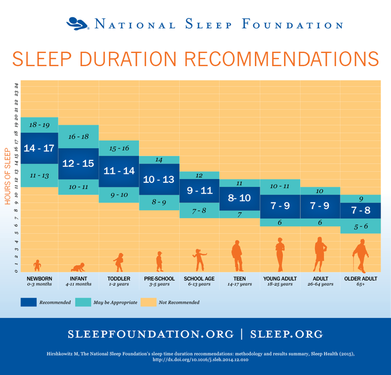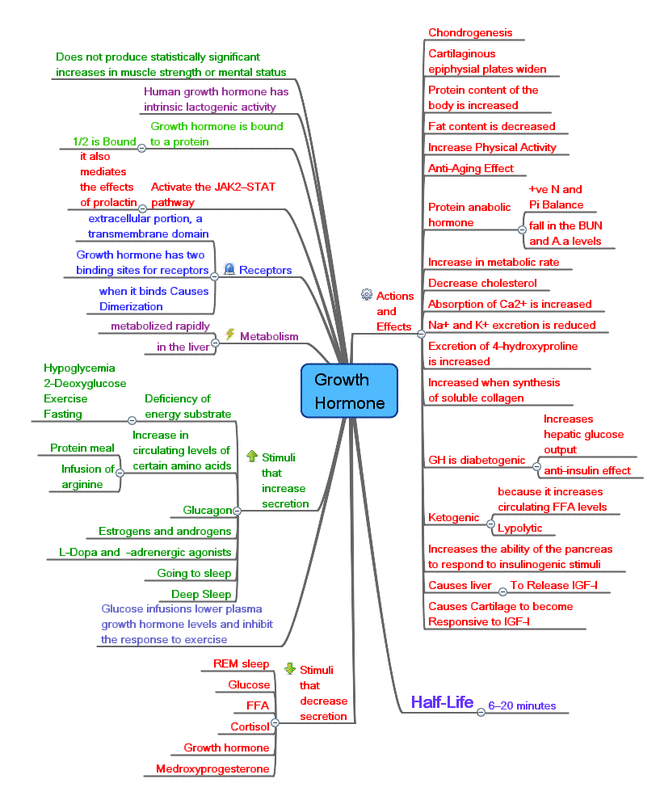Quick reprise: understanding growth hormone is essential to understanding your body’s metabolism(click here for article on Growth Hormone basics), and with that understanding we can perhaps apply our understanding to behaviors we can adopt or examine to influence our own metabolisms. |

by Tami Wise, Transitional Fitness Trainer
You might notice my ‘jumpsuit.’ At the time I asked Carla to add my face to a prisoner body, it was due to the play on words ‘arrest for growth’ ie.’ Ahh, rest for growth.’ Turns out is was more prophetic than this female body was aware. Rest does influence growth hormone production; the amount of time spent in Deep Sleep, or the delta wave(the slowest of the brain waves) is where you find as much as %70 of a persons daily growth hormone production...if that person is a MAN!
Perhaps the most potent stimulator of growth hormone(GH), in men is sleep. GH is released in pulses, or the peaks/surges. If we are are trying to increase our metabolism, we want to peak longer and more often(@Drew Lizon ‘that’s what she said’), we need to spend more time in deep sleep.
DON’T CHEAT! IT’S SLEEP!
According to the National Sleep Foundation’s website, from ages 18-64 adult humans need between 7-9 hours of sleep daily. (I love infographics, and the National Sleep Foundation has created a lovely one titled Sleep Duration Recommendations) Considering that there are essentially 4 stages of sleep that we cycle through, and multiple times, in a good sleep session, it is important to provide adequate time for the work of sleep. This passage from an article on Brain Basics: Understanding Sleep, provides a short review of the phases of sleep(in case I don’t get another opportunity to say this, sleep scientists are no longer sure that sleep cycle progression is this simple, but that doesn’t impact the percentage of time spent in the wave(s) we are focused on either, so I am choosing not to ‘go there’ today):
- During sleep, we usually pass through five phases of sleep: stages 1, 2, 3, 4, and REM (rapid eye movement) sleep. These stages progress in a cycle from stage 1 to REM sleep, then the cycle starts over again with stage 1. We spend almost 50 percent of our total sleep time in stage 2 sleep, about 20 percent in REM sleep, and the remaining 30 percent in the other stages...
- The first REM sleep period usually occurs about 70 to 90 minutes after we fall asleep. A complete sleep cycle takes 90 to 110 minutes on average. The first sleep cycles each night contain relatively short REM periods and long periods of deep sleep. As the night progresses, REM sleep periods increase in length while deep sleep decreases. By morning, people spend nearly all their sleep time in stages 1, 2, and REM.
 CLICK ON IMAGE TO ENLARGE
CLICK ON IMAGE TO ENLARGE How can you increase the amount of time you spend in deep sleep? Essentially, it’s like anything else, making sleep a priority is a good start--get more, better rest. Simply we will consider the day influences and the night influences, of more rest and better rest.
The amount of slow-wave sleep observed in a given sleep period, is heavily influenced by what you did when you were awake. Another way to consider this, ‘how did you accumulate sleep-promoting substances in your brain toDAY?’ To trigger them is in our control. (correct wording? cuz I’m sure that’s an incomplete sentence...but my brain is in meltdown)
It is thought that body heating activities, whether through immersion in a hot tub or sauna, or intense prolonged exercise; activities where thermo-sensitive neurons detect an increase in our brain temperature, which exceeds a certain threshold(mayday MELTDOWN)--produce a kickback! KICKBACK: increased need for the cooling brain support of delta sleep. We have thermoregulatory mechanisms that keep us in safe good working order...fiddle with em.
Like wise, in a short term study(observation of 14 males ages 18-35, over 48 hours),a crazy low-carb diet(ie. 2400 kal daily, comprised of 1% carb, 38% protein, 61% fat) showed significant increase in deep sleep and a decrease in REM sleep. Since the results of this study are tied to a 2 day application, I would want to know if these results held up over years of that dietary plan!! I mean this sounds awful if you’re me(Pasta-Hound Wise), but everyone’s playground has different equipment.
Speaking of drugs, there is a lot of info on the effects various substances have on deep sleep. So I am going to light-touch on this. Alcohol in healthy people(nonalcoholics), in higher amounts is thought to shorten deep sleep and lower the power of the amplitude of the delta wave. A drink(a standard drink is defined as one 12-ounce bottle of beer or wine cooler, one 5-ounce glass of wine, and 1.5 ounces of 80 proof distilled spirits) can have a light sedative effect on the body and deeper relax one into rest--it’s also believed the body’s tolerance to alcohol’s sedative effects probably develops rapidly. SSRIs they think increase deep sleep, but can fiddle with the cycles of sleep(verdicts out). Melatonin supplements: one article I read said melatonin could increase GH by %150(kinda feels like somebody wants to find a ‘magic bullet’). I could not find a study that would back that claim to that degree.
To quote Bob Seger, ‘Workin’ on our night moves,’ let’s start with duration. Going back to that sweet infographic from the National Sleep Foundation, 7-9 hours of sleep a night seems to hold merit. Below is a list of sleep tips, copied from the National Sleep Foundation’s website, to help you find better rest at night(I left the links active because they connect to interesting and helpful posts):
- Stick to a sleep schedule , even on weekends.
- Practice a relaxing bedtime ritual .
- Exercise daily.
- Evaluate your bedroom to ensure ideal temperature, sound and light.
- Sleep on a comfortable mattress and pillows.
- Beware of hidden sleep stealers , like alcohol and caffeine.
- Turn off electronics before bed.
When I read on the National Sleep Foundation’s website, ‘most importantly, make sleep a priority,’ I thought, ‘that’s stupid,’ well maybe it’s not that stupid. I’m not innately driven for a lot of sleep, so I actually have to consciously make that amount of time to sleep, a priority.
Sleep is sophisticated work. Memory consolidation and ‘brain clean up,’ recuperation of the entire mind-body system, are just a couple of the ‘simple’ duties of sleep. Admittedly, reading for this article has sparked in me 2 things; the desire to read more on brainwaves and sleep so as to influence them, and to actively contrast my daily rest with my daily functioning. Whether male or female, effective cycles of sleep influence a lot of what I call ‘good living--having the energy and the mood to enjoy living.
Now as best I can tell, sleep research is in a sort of rapid-revolution state. In a future series of article shorts I intend to examine sleep in greater detail--specifically how disrupted sleep impacts a host of body systems and their functioning.
Seriously! Time for WORK! Women, it looks like we produce greater GH, and in more even doses throughout the day. Where do we get our greatest GH kickback? EXERCISE! Really?! So rest up ladies! Remember, growth hormone influences your body to burn fat as fuel, build muscle, keep your bones, skin, and maintain healthy hair--big pay off...BIG! Article Shorts will return with a review of what women need to know about how to influence growth hormone in the female body: what will champion and what will check GH production for the DOUBLE X!
1. [unattributed] National Institutes of Health, National Institute of Neurological Disorders and Stroke [http://www.ninds.nih.gov/disorders/brain_basics/understanding_sleep.htm#dreaming]: para. 3 [July 25, 2014]
2. [unattributed] National Institutes of Health, National Institute of Neurological Disorders and Stroke
[http://www.ninds.nih.gov/disorders/brain_basics/understanding_sleep.htm#dreaming]: para. 6 [July 25, 2014]


 RSS Feed
RSS Feed
